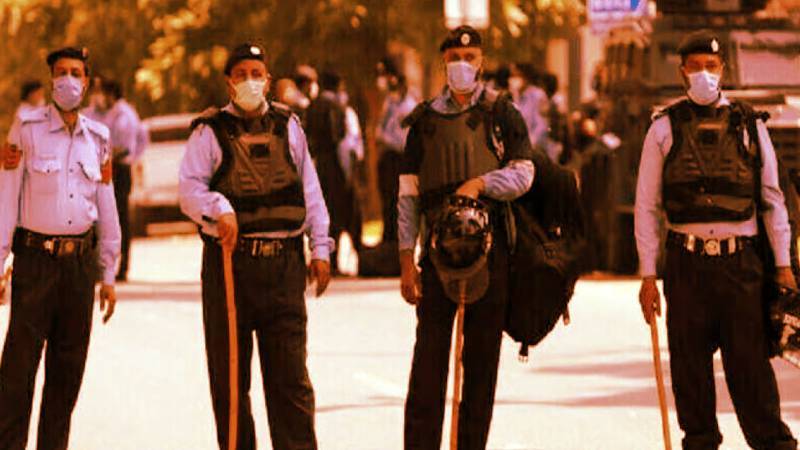
Islamabad, the second most beautiful capital of the world, with reinforced, intermodal container walls and heavy deployment of the Law Enforcing Agencies (LEAs) recently witnessed its interim transformation into a fortress which the Pakistan Tehreek-i-Insaf (PTI), bullheaded to triumph, made its way to the DChowk, the epicenter of Pakistan's constitutional machinery. This predicament underscores the intertwined rights of the State, protestors, and citizens.
The Constitution of the Islamic Republic of Pakistan, 1973, safeguarding the fundamental rights of citizens, is reticent on the explicit right to protest. Nonetheless, it unequivocally upholds the right of assembly, subject to it being peaceful, unarmed, and within reasonable restrictions imposed by law.
In unison, it is the paramount duty of the State to maintain public order, ensure access to roads, promote the economic welfare of the State and its citizens, and uphold the fundamental rights of all individuals. To preserve this, the law empowers the State to preventively detain, arrest, and disperse unlawful assemblies using force. Notably, Section 128 of the Code of Criminal Procedure, 1898 even permits the use of firearms, a provision that starkly contravenes the United Nations Guidance on Less-lethal Weapons in Law Enforcement, which asserts that the use of firearms to disperse an assembly is always unlawful. Recently, to regulate public assemblies in Islamabad, the Peaceful Assembly and Public Order Act, 2024 was promulgated on September 6, 2024. This legislation mandates that assemblies be held only in designated areas, aiming to balance public order with the right to peaceful assembly.
The indirect economic losses from recent protests amounted to Rupees 192 billion per day, conflicting with the State’s responsibility to promote economic welfare
In pursuit of the performance of its duties and obstinate to prevent the ingress of PTI in Islamabad, the State employed intermodal containers to block roads deployed heavy contingents of LEAs, including the army, and suspended mobile services. Ironically, these measures led the State into violation of its duties: the use of intermodal containers obstructed roads—contradicting the State’s obligation to ensure access to roads. Constitutional courts have previously declared the suspension of mobile services by the State unlawful, recognising it as an infringement on citizens’ fundamental right to access telecommunication services. Moreover, the indirect economic losses from recent protests amounted to Rupees 192 billion per day, conflicting with the State’s responsibility to promote economic welfare.
Afflicted in this tug-of-war between the State and Protestors are citizens. Their life is brought to a halt: access to healthcare, educational institutions, business activities, and the pursuit of their vocation is impeded. Daily workers are denied the possibility of earning a livelihood, and property damage is anticipated. Deplorably, their access to courts for enforcement of fundamental rights is also obstructed. This quandary infringes upon their right to life, freedom of movement, freedom to trade, business or profession, access to education, justice, healthcare, information, and the right to hold and enjoy property enshrined in the Constitution.
The idea behind the constitutional framework is to strike a balance between the right of assembly and the protection of citizens' rights. When there is a violation of peaceful assembly and disruption of public order, it entrusts the State with enforcement through coercive means. Is the Peaceful Assembly and Public Order Act, of 2024 a bid to strike that balance? Ideally, a designated place to protest allows citizens to carry on with their daily lives as usual without the need for a citywide lockdown or suspension of mobile services, maintaining peace and preventing unnecessary state intervention. This allows for the State to work towards the welfare of the State and its citizens, potentially saving the reported loss of Rs 192 billion per day resulting from the recent protests, while upholding the rights of peaceful assembly.
However, the question arises: can the legitimate demands of protestors be met in such an ideal undisturbed situation? The 126-day 2014 PTI-PAT protest culminated without resolution between the State and the protestors. In contrast, a protest march in Azad Jammu and Kashmir (AJK) in 2024, following several days of clashes over high prices, saw the protest called off on May 14 after the Prime Minister approved a grant of 23 billion rupees to address most of their demands, including subsidies on flour and electricity prices. The answer lies in the quote of John F. Kennedy: “Those who make peaceful revolution impossible will make violent revolution inevitable.”

